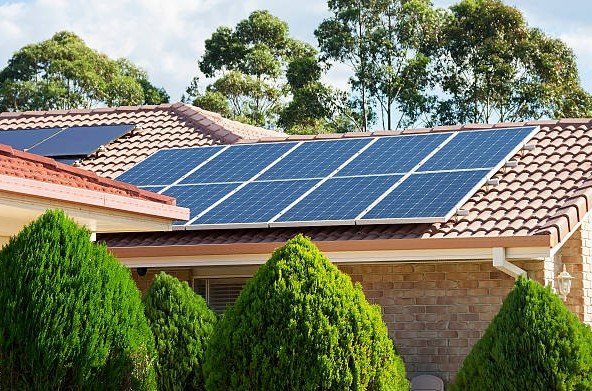In a bold move against federal cuts, Georgia BRIGHT announced plans to take legal action after the EPA abruptly canceled the $7 billion Solar for All program on August 7, 2025. This decision derailed the nonprofit’s efforts to provide free solar panels to thousands of low-income households across Georgia, sparking outrage over lost energy savings and environmental benefits just days after the program’s launch.
Program Launch and Sudden Cancellation
Georgia BRIGHT kicked off its Solar for All initiative on August 4, 2025, aiming to install rooftop solar arrays at no cost for families earning up to 80% of their area’s median income. The program promised to cut energy bills by 50 to 70% and offer backup power during outages, a critical need amid Georgia’s rising weather emergencies.
Within days, nearly 1,000 families signed up, with a lottery planned to select 400 initial recipients. Founder Alicia Brown expressed confidence in the funding, which totaled $156 million for Georgia, obligated since December 2024.
But the momentum halted when EPA Administrator Lee Zeldin announced the termination, citing the One Big Beautiful Bill Act’s repeal of the Greenhouse Gas Reduction Fund. Zeldin called the program a “boondoggle” and accused it of inefficiencies, including middlemen taking cuts, though evidence for these claims remains thin.
This cancellation affects not just Georgia but programs nationwide, halting solar projects in states like Michigan, Pennsylvania, and Arkansas. Critics argue it undermines efforts to make clean energy accessible to underserved communities.

Legal Battle Ahead for Georgia BRIGHT
Georgia BRIGHT vows to fight back through the courts, stating the EPA’s move violates legal obligations for already committed funds. “We will pursue every legal avenue to restore this program,” Brown said in a recent statement, emphasizing the impact on families, businesses, and the local economy.
Legal experts suggest the case could hinge on whether the funds were legally obligated before the repeal. Similar challenges have emerged in other states, with groups like Groundswell reporting partial project implementations already underway.
The nonprofit plans to argue that the sudden cut ignores the program’s progress, including early installations that have reduced power bills and boosted energy independence. If successful, the lawsuit could set a precedent for protecting federal green energy grants.
This action aligns with broader resistance to Trump administration policies rolling back Biden-era climate initiatives. Environmental advocates see it as a test of the rule of law in renewable energy funding.
Impacts on Low-Income Families and Communities
For many Georgians, the program’s end means more than lost savings; it threatens resilience against power outages that can spoil food or disrupt medical equipment. Christine DiFeliciantonio, a pilot program recipient in Columbus, has enjoyed reliable power from her 27 solar panels since March 2025.
Without Solar for All, low-income households face higher energy costs, exacerbating financial strains. The initiative targeted installations for thousands of homes from 2025 to 2029, potentially generating jobs in solar installation and maintenance.
Communities like those served by Trees Atlanta, a partner in Georgia BRIGHT’s commercial pilots, stand to lose environmental benefits such as reduced carbon emissions.
Key potential losses include:
- Up to 70% reduction in monthly energy bills for participants.
- Backup power during storms, vital in a state hit by increasing hurricanes and floods.
- Economic boosts from local solar jobs and lower utility demands.
Broader Implications for U.S. Clean Energy
The EPA’s decision fits into a pattern of scaling back renewable programs under the current administration. Just months into 2025, similar cuts have targeted tax credits and loans, slowing the nation’s shift to green energy.
Nationwide, the $7 billion fund supported 60 programs, with some like North Dakota’s Indigenized Energy already completing tribal installations. Analysts warn this could delay decarbonization goals and lead to job losses in the solar sector.
A table of affected states shows the scope:
| State | Funding Amount | Planned Installations |
|---|---|---|
| Georgia | $156 million | Thousands of households |
| Michigan | Varies | Low-income solar projects |
| Pennsylvania | Varies | Community solar arrays |
| Arkansas | Varies | Rural energy access |
Environmental groups predict legal battles could drag into 2026, potentially restoring funds if courts rule in favor of prior commitments.
What Happens Next and Public Response
As Georgia BRIGHT prepares its lawsuit, supporters rally online and in communities, sharing stories of how solar access could transform lives. Public sentiment, seen in social media discussions, highlights frustration over prioritizing politics over practical benefits.
The case may influence upcoming elections, with clean energy becoming a hot topic. Meanwhile, Georgia BRIGHT explores private funding alternatives to keep some momentum alive.
We encourage readers to share this article and comment below with your thoughts on the EPA’s decision and its effects on renewable energy access.
